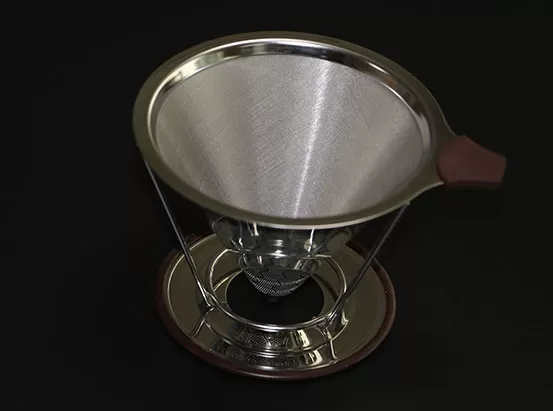Yes, pleated water filters can be washable, depending on their material and construction. Many pleated filters made from synthetic materials like polyester or polypropylene are designed to be cleaned and reused, offering a practical and cost-effective solution for various water filtration needs. However, not all pleated filters are created equal, and understanding the specifics of your filter is crucial.

Pleated water filters are popular due to their efficient design, which maximizes surface area for capturing contaminants. These filters are used in a variety of settings, from residential drinking water systems to industrial applications. The pleats in the filter provide a larger area for trapping particles, making them highly effective at removing sediments, dirt, and other impurities from water.
The key to knowing if a pleated water filter is washable lies in the materials used. Washable pleated filters are typically made from durable synthetic materials such as polyester, polypropylene, or nylon. These materials can withstand multiple cleaning cycles without degrading.
In contrast, pleated filters made from cellulose or paper are generally not washable. These materials can break down when exposed to water and cleaning agents, making them unsuitable for repeated use.
If you have confirmed that your pleated water filter is made from washable materials, follow these steps to clean it effectively:
Remove the Filter: Start by turning off the water supply and carefully removing the filter from its housing. Handle the filter gently to avoid damaging the pleats.
Initial Rinse: Rinse the filter under a gentle stream of water to remove loose debris and dirt. Use lukewarm water to avoid damaging the filter material.
Soak in Cleaning Solution: Prepare a mild cleaning solution using water and a few drops of dish soap or a specialized filter cleaner. Soak the filter in this solution for 15-30 minutes to help loosen any embedded particles.
Rinse Thoroughly: After soaking, rinse the filter thoroughly to remove all soap residues. Ensure that no cleaning solution remains, as it can affect the filter’s performance and the quality of your water.
Dry Completely: Allow the filter to air dry completely before reinstalling it. This step is crucial to prevent mold and bacteria growth. Place the filter in a clean, dry area with good air circulation.
Inspect the Filter: Before reinstallation, inspect the filter for any signs of damage or wear. If the filter shows significant wear or the pleats are damaged, it may be time to replace it.
Washable pleated water filters find use in various real-life applications:
Residential Water Filtration: Homeowners use pleated filters in under-sink and whole-house filtration systems to ensure clean drinking water. Regularly washing these filters can extend their life and reduce replacement costs.
Featured content:Pool Filtration: Pools often use pleated filters to maintain clear and clean water. Washing the filters helps maintain the pool’s water quality and reduces the need for frequent replacements.
Industrial Water Treatment: In industrial settings, pleated filters are used to filter large volumes of water, removing sediments and contaminants that can affect machinery and processes. Washing these filters helps maintain operational efficiency and reduce maintenance costs.
Washing pleated water filters offers several benefits:
Cost Savings: Regular cleaning can extend the life of the filter, reducing the frequency of replacements and saving money over time.
Environmental Impact: By reusing filters, you reduce waste and the environmental impact associated with disposable filters.
Performance Maintenance: Clean filters maintain their filtration efficiency, ensuring consistent water quality and protecting downstream equipment and processes.
Convenience: Having the ability to wash and reuse filters means less downtime and hassle associated with ordering and replacing filters frequently.
While washing pleated water filters can extend their lifespan, it is important to know when it’s time to replace them. Signs that a filter needs replacement include:
Persistent clogging or reduced water flow despite cleaning.
Visible damage to the filter material, such as tears or holes.
Noticeable degradation in water quality.
Exceeding the manufacturer’s recommended lifespan for the filter.
Even washable pleated filters have a finite lifespan and will eventually need to be replaced to ensure optimal performance.
In conclusion, many pleated water filters are washable, particularly those made from synthetic materials like polyester or polypropylene. Washing these filters can provide significant benefits, including cost savings, reduced environmental impact, and maintained filtration efficiency. However, it is crucial to follow proper cleaning procedures and recognize when a filter has reached the end of its useful life. By doing so, you can ensure that your water filtration system continues to operate effectively and provides clean, safe water for your needs.
Previous: None
Next: None
Comments
Please Join Us to post.
0